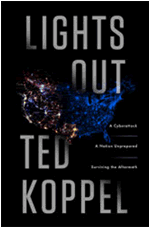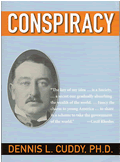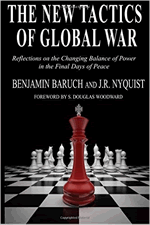THE PROBLEM WITH TRUTH
By Ms. Smallback
March 11, 2017
NewsWithViews.com
What happens when the answers and the truth take different sides?*
Being raised in the world creates some difficult obstacles for understanding and wisdom outside of the paradigm of convention. I had a conversation recently with someone about what I find troubling implications of pizzagate/pedogate and the rumor that if brought to light it allegedly would implicate a third of the Congress/Senate. He dismissed the entire charge for investigation because it sounded “crazy” to him that a third of Congress could really be involved in child trafficking.
He later dismissed a pretty good presentation of evidence gathered from another individual because that same individual believed the WTC towers were brought down by explosives, not airplanes. Mind you, the evidence on child and/or sex trafficking was what was being presented.
“...I am a king. For this I have been born, and for this I have come into the world, to testify to the truth. Everyone who is of the truth hears My voice." —Jesus to Pilate when brought in for questioning. [John 18:37 NASU]
We have an interesting concept here: truth. Pilate is trying to get to the bottom of the charges against Jesus. To Pilate it should be a simple matter: did Jesus break some law? The simplicity is absent, however, because the desired outcome (death to Jesus) does not match any of the alleged “crimes”. Pilate jumped ahead of the perfunctory Q & A in an attempt to get to the meaningful crux of the matter in how it would pertain to himself (Pilate): “Are you the King of the Jews?”
You have to understand context. Pilate is the “governor” of sorts for Rome in Judea, headquartered in Jerusalem. He’s charged with keeping the peace between Rome and those being governed against their will: the Jews. It is treason to have any king but Caesar. Pilate is trying to discern whether Jesus is a threat to Caesar. He cares very little about any Jewish laws Jesus has broken; he only cares that there will not be an insurrection against Rome’s rule.
Jesus knows that calling Himself King of the Jews would be a threat to Rome. Jesus responded to Pilate’s questions by acknowledging that He is indeed a King, but not of the Jews. This is a mystery to Pilate. Jesus knows Pilate does not have a grid for understanding the real issue at hand, and his response is akin to His knowledge of Pilate. Jesus acknowledged what Pilate was looking for (“Are you a King?”), and Jesus’ reply is not a threat to Pilate. Jesus then gives Pilate insight, (“My Kingdom is not of this world…”).
As Pilate grapples with this idea and tries to put it into context, he reasserts his question, “So you are a king?” That’s when Jesus replies, “...I am a king. For this I have been born, and for this I have come into the world, to testify to the truth. Everyone who is of the truth hears My voice."
This is the moment of revelation for truth seekers. We’re seeking truth, correct? (But not everyone is seeking truth. Some people are just seeking answers to confirm their beliefs and corroborate their biases.) And when we get a response or data that answers the question differently than what we’re asking we have a moment of decision: do we pursue this truth or disregard it?
If we pursue the new truth that has been presented, (e.g. So Jesus is a King, but not King of the Jews…), a whole new set of questions is presented. And who has time for that?? Just answer my question and let me go on, is our typical thought. Unless we care more about truth than answers.
“Pilate said to Him, ‘What is truth?’” (John 18:38 NASU) He then dismissed the charges and tried to release Christ. Why? Because Pilate caught the greater truth, but was unwilling to pursue it. The lazy man’s response is always exchanging truth for an answer. Pilate got the truth (who Jesus really is), but exchanged it for the answer (He’s not a threat to Caesar). He then dismissed the revelation in a manipulative brush off that was more for the sake of his conscience than a genuine question, “What is truth?” [Now Pilate doesn’t have to actually do anything with the revelation, because he in essence discounted it.]
Now apply that to life. It is a waste of time to expound on truth to people who just want answers. Answers are easily found. Truth rarely is. Truth requires discipline and demands accountability. If I possess truth, I cannot exchange it for something less without losing something myself. I am accountable for the truth I possess. And for those who seek and find truth, answers are simply not enough.
When we consider current events, national events, and even world events, the pursuit of truth becomes practically a full-time job. Answers abound, but truth must be sought out. And because people are at a myriad of different places in their lives, their understanding of truth varies considerably. We have to understand this. Truth is simple and complex at the same time, and truth can be duplex. Sometimes this is hard to come to terms with.
Christ’s declarations of Himself and truth are weighty. There are a lot of “Pilates” in this world that get a cursory glance of His truth and dismiss it with the “what is truth?” brush off. No one is the better for this. Christ said He came into the world to testify to the truth. Testify means to bear witness. [It comes from the Greek word “martureo” from where we also get the word “martyr”. Martyrs are witnesses of Christ who are killed for their witness (or testimony).]
In the gospel of John where it records the night Jesus was betrayed, John recounts Christ’s words to His disciples. It’s a lengthy discourse of instructions, declarations, explanations and warnings – of which many of these things the disciples clearly had no grid for understanding. He seems to begin to wrap it up and He says this interesting thing, which we would do well to take notice of:
"I have many more things to say to you, but you cannot bear them now.” —John 16:12 NASU
What this should help us understand is that we can’t always grasp truths given to us. It has to do with our present level of understanding and experience. At the time Jesus was giving this discourse, His disciples seemed unable to comprehend that He was mere hours from His betrayal and death. They were unable to grasp not only that He was going to die, but also that it was purposeful and part of the plan. They could not grasp that. They had nothing in their realm of experiences, nothing in their understanding of God and even current events that prepared them for this truth. In fact, they did not even grasp it when He had resurrected. [See John 20:9.]
And so it is with truth and the human heart and mind. Our experiences coupled with our level of understanding are what either prevents truth from being understood and received, or grants it. To put it on a current events level:
If my friend has only really listened to mainstream media, believes CNN to be factual and honest, and has an exemplar of patriotism that prevents contradictions or doubts from surfacing and being honestly evaluated, my assertions that circumstantial evidence exists of child trafficking rings implicating the political elite will be scorned. There is no other way for that heart or mind to process my assertions.
It’s a waste of time for a truth seeker to do anything more than present information to someone looking for answers. If the answers don’t come in the format they’re expecting or looking for, they reject the data. Move on. Don’t waste your time with answer gatherers. There are people seeking truth that will evaluate your information on a deeper level. You’re not responsible for others’ processing. You’re responsible and accountable to your knowledge of the truth.
If my friend is merely an answer gatherer, if his real interest is in collecting data to reinforce his current way of thinking, I merely drop the information and go. Anything more is fruitless. But if my friend is a truth seeker, the information I drop becomes seeds. If he doesn’t have a grid for understanding yet, the seeds will lie dormant until he does. When he does, the seeds will sprout. Either way, I drop truths as the occasions call. Truth seekers seek out truth. Answer gatherers build dossiers.
The principles of society and culture are adversaries of truth. Our society is structured to present paradigms and status quos in a methodical procedure that necessitates adherence. To look outside the prototype is discouraged and can actually be dangerous if it rocks the boat too much.
How did the disciples finally become enlightened enough to receive the truth? (This is our key, because like it or not, if we’ve been raised in this world and its systems, our revelation of truth is skewed at best, nonexistent at worst.) Christ Himself answered this right after He told them He couldn’t tell them anything else because they couldn’t handle it.
“But when He, the Spirit of truth, comes, He will guide you into all the truth; for He will not speak on His own initiative, but whatever He hears, He will speak; and He will disclose to you what is to come. He will glorify Me, for He will take of Mine and will disclose it to you. All things that the Father has are Mine; therefore I said that He takes of Mine and will disclose it to you.” —John 16:13-15 NASU
Truth is heavy. It requires responsibility, and sometimes a lot of responsibility. But it is liberating. There are truths I was given when I didn’t have a grid for understanding. My mind rejected those truths, but my spirit tucked them away. As I grew in wisdom and understanding, I was able to take those truths back out and begin to process them, or they confirmed things I was learning. I take in a lot of data. I read and research quite a bit. I don’t understand or agree with everything I read and research. I don’t know how some of it fits or if it even does. So I table those things. If they matter and I need to understand them, they come out eventually.
Truth comes in levels and layers. We start with basic truths and as we’re faithful and responsible with those, we’re able to receive deeper levels of truth. We operate on the levels of truth we’re walking in. The place we decide to stop, stagnate, or plant ourselves in our learned truths, is the place we’ll stay. It will define us and it will be the parameter for our learning.
Deeper levels of truth can seem to contradict more basic levels of truth. The best way I can explain this is encourage one to read Romans 14. Or consider the answers of Christ to His accusers in Luke 6:1-5. The truth to the Pharisees was the showbread is only lawful for the priests to eat. And that is truth. But the truth Christ revealed was deeper. The Pharisees had stopped on their basic truths of law and therefore were unable to receive the deeper truth of the spirit. The deeper truth seemed to conflict the more basic truth, but both were truths.
Romans 14 explains how holding your brothers to your level of truth can be a stumbling block or hindrance. The “weaker brother” who adheres to the law for his diet is still walking in truth, while the one who has deeper truth and is obeying it is simply walking in deeper truth. God is able to make both stand. (vs. 4) I would suggest that the level of truth one walks in has a direct impact on the level of liberty and responsibility one has. This is why my expectations of behavior from my five year old vary differently than those of my fifteen year old. Each’s understanding of truth is contingent on their ability to understand and their experiences for frame of reference.
If we’re maturing, our ability to comprehend and receive deeper truths should grow. As believers, we need only ask the Spirit to disclose truths for us. As He does, we should be prepared to receive them and respond accordingly.
|
|
The same disciples that could not comprehend Christ’s teachings before His death would go on to change their minds about a lot of things. They would go on to see their world differently and to respond differently to it. They would go on to “turn the world upside down”, change nations, people’s lives, and ultimately, the entire world. Why? Because Christ came to testify to the truth and people have responded to that truth for two millennia.
* borrowed from NeedtoBreathe song “Through Smoke”
© 2017 Ms. Smallback - All Rights Reserved
M. Smallback is a researcher, writer and speaker from the Midwest. Titles from her experience box include teaching, homeschooling, lectures, drama team directing, but predominantly educating in various forms. She has spent two decades and more researching a variety of topics, writing on them, speaking on them, and teaching about them. Her primary focuses are: following God; overcoming adversity, trauma and crisis for breakthrough in personal lives; the return of Christ; and hidden truths of American politics behind the propaganda of the American media.
Website: www.eternalissues.com
E-Mail: M.Smallback@cox.net















 Share
This Article
Share
This Article







